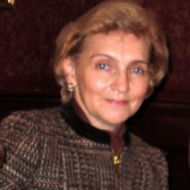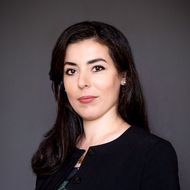- A
- A
- A
- ABC
- ABC
- ABC
- А
- А
- А
- А
- А
- HSE University
- Faculty of World Economy and International Affairs
- School of International Regional Studies
- News
- The Expansion of Russian Business to Europe: Cultural and Political Limitations
-
School
-
Online

The School of International Regional Studies is a research and educational centre seeking to revive international regional studies as an academic discipline in Russia. The department’s world-class professors train the next generation of regional studies specialists while developing an increasingly prestigious research school.
Kanaev E., Adno Y., Afontsev S. et al.
IMEMO RAN, 2024.
In press
Kozylov I.
Russia in Global Affairs. 2024. Vol. 22.
In bk.: Towards a Hybrid, Flexible and Socially Engaged Higher Education. Proceedings of the 26th International Conference on Interactive Collaborative Learning (ICL2023), Volume 1. Iss. 1. Cham: Springer, 2024. P. 511-519.
Shein S., Ryzhkin E.
Political Science. PS. Высшая школа экономики, 2022. No. 89.

The Expansion of Russian Business to Europe: Cultural and Political Limitations
The discussion was moderated by Head of the School of International Regional Studies Vera Vishnyakova, Highlighting the importance of economic cooperation, Dr. Vishnyakova stressed the need consider cultural characteristics of doing business.
The expert noted that Russian business in Europe is mostly small business, part of which is based in Russia. Russia owns only 1-5% of the total EU FDI, and there are very few success stories of Russian companies in Europe. However, favorable preconditions for business development in Europe is in place with ten million Russian-speaking population of the EU, 1.8 million Russians and hundreds of thousands of Russia-focused legal entities.
The speaker outlined main barriers faced not only by businessmen from Russia, but also by all foreigners. There is no homogeneous “European” business culture, as each country needs its own unique strategy.
- About
- About
- Key Figures & Facts
- Sustainability at HSE University
- Faculties & Departments
- International Partnerships
- Faculty & Staff
- HSE Buildings
- Public Enquiries
- Studies
- Admissions
- Programme Catalogue
- Undergraduate
- Graduate
- Exchange Programmes
- Summer University
- Summer Schools
- Semester in Moscow
- Business Internship
-
https://elearning.hse.ru/en/mooc/
Massive Open Online Courses
-
https://www.hse.ru/en/visual/
HSE Site for the Visually Impaired
-
http://5top100.com/
Russian Academic Excellence Project 5-100
- © HSE University 1993–2024 Contacts Copyright Privacy Policy Site Map
- Edit



